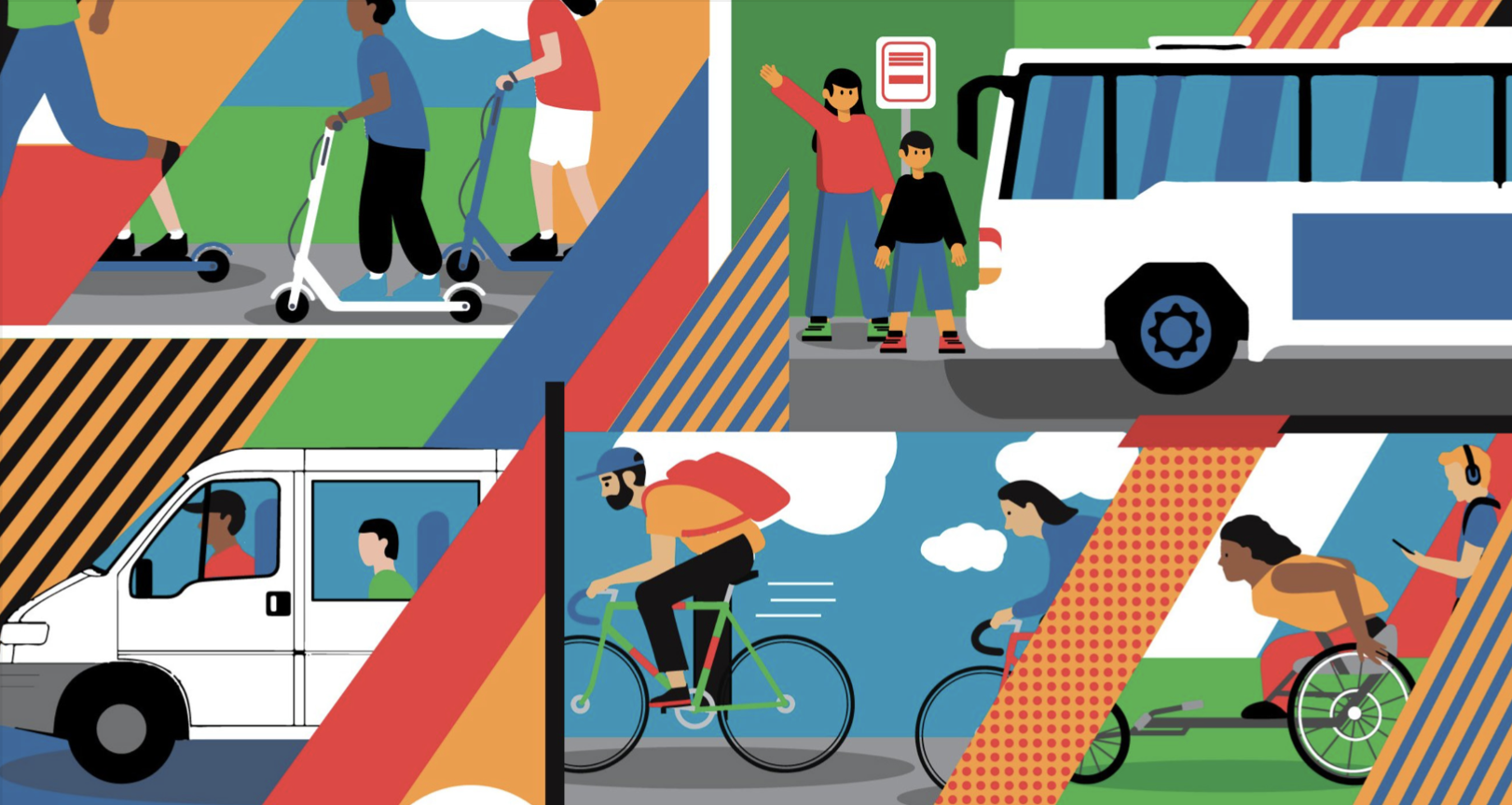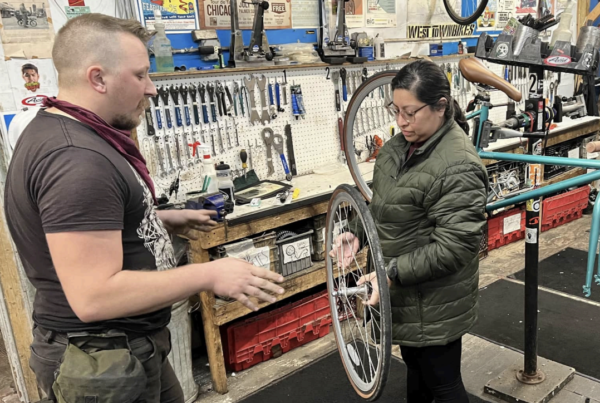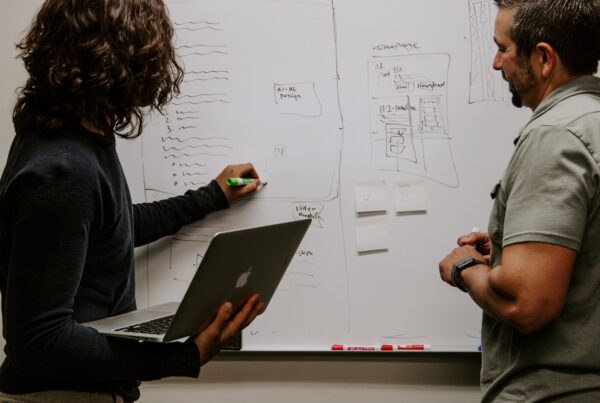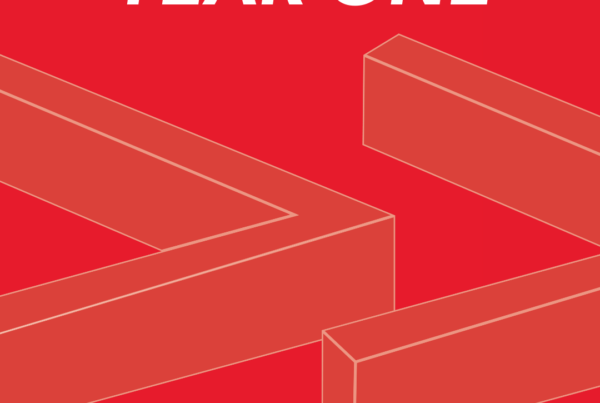The paper will be a resource for advocates and policymakers looking to leverage federal funding for clean transportation projects.
FOR IMMEDIATE RELEASE
October 30, 2023
Media Contact
Megan Perrero, Partnerships & Engagement Specialist
[email protected]
In the context of the historic level of funding authorized by the Bipartisan Infrastructure Law (BIL) and the Inflation Reduction Act (IRA) to support transportation projects, the Shared-Use Mobility Center (SUMC), the convener of the Shared Mobility 2030 Action Agenda Network, published the policy paper, “Flex Your Grants: Leveraging Federal Dollars for Clean Transportation Projects.”
This policy paper analyzes new and existing federal funding programs and explains how state, regional, and local governments can leverage those funds to advance clean transportation projects. The passage of the Bipartisan Infrastructure Law and Inflation Reduction Act coincides with climate change continuing to affect communities across the United States. State DOTs and local communities have an historic opportunity to choose seizing new funding opportunities to support community-oriented clean transportation projects, or maintaining the status quo prioritizing car-centric infrastructure.
The paper advances the priorities of the Shared Mobility 2030 Action Agenda Network Funding Working Group to find new and creative ways to expand and sustain shared mobility infrastructure and services.
This paper was supported by RE-AMP, an Action Agenda Network Member, and developed in collaboration with a RE-AMP Action Team – including 1000 Friends of Iowa, 1000 Friends of Wisconsin, Move Minnesota, Resilient Cities and Communities, and Transportation Riders United – that works to ensure federal dollars are spent to decarbonize our transportation system through promoting multi-modal alternatives.
The paper serves as a resource to help transportation advocates and local communities to navigate the many funding opportunities that the BIL and IRA have created for transportation projects. The paper also provides a tool for advocates for climate solutions to make the most of the federal transportation programs’ flexibility to steer federal dollars away from roadway expansion projects toward clean transportation projects and existing road maintenance.
The paper features short case studies of communities using federal funding to support clean transportation projects. New and existing grant programs – like CMAQ and Safe Streets and Roads for All – are explored, along with case studies of successful projects these grants have supported, such as electric assisted bike share programs in Wisconsin, a statewide microtransit initiative in North Carolina, and electric vehicle charging networks in Minnesota. By illustrating how local communities can use federal funds to support their clean transportation projects, SUMC and RE-AMP aim to inspire advocates and policymakers to implement cleaner and more innovative mobility solutions, thereby reshaping the paradigm of transportation systems we prioritize moving forward.
ABOUT THE SHARED-USE MOBILITY CENTER (SUMC)
SUMC is a 501(c)(3) nonprofit, public interest organization and international thought leader working to replace car-centric transportation with people-focused shared mobility to fight climate change, promote equity, and strengthen community. Learn more at: www.sharedusemobilitycenter.org.
ABOUT RE-AMP
The mission of the RE-AMP Network is to set collective strategy and enable collaboration on climate solutions in the Midwest. Our North Star Goal is to equitably eliminate greenhouse gas emissions in the Midwest by 2050. Learn more at:
ABOUT SHARED MOBILITY 2030 ACTION AGENDA
The Shared Mobility 2030 Action Agenda is a platform for cross-sector collaboration and
accountability around seven priority Action Items necessary to make shared mobility more attractive than owning or driving a car by 2030. Learn more at:
https://sharedmobility2030.org/
ABOUT 1000 FRIENDS OF IOWA
1000 Friends of Iowa is a statewide, membership based organization focused on engaging Iowans around responsible, equitable land use, transportation, and the intersection of climate change. Learn more at:
ABOUT 1000 FRIENDS OF WISCONSIN
1000 Friends of Wisconsin was created in 1996 with a focus on promoting Wisconsin’s Smart Growth Comprehensive Planning Law. We understand that climate change and land use are intrinsically linked. Our goal is to help people make the connection between sound land use and transportation decisions, which lead to a healthier, cleaner environment. Learn more at:
ABOUT MOVE MINNESOTA
Move Minnesota leads the movement for just and sustainable transportation in Minnesota. We are passionate about connecting communities, ending the climate crisis, expanding access to jobs and resources, and improving daily life for Minnesotans of all ages, races, incomes, and abilities. We connect people to transit where the system works well, and fight hard to ensure it works for everyone. Learn more at:
ABOUT RESILIENT CITIES AND COMMUNITIES
Resilient Cities and Communities is a peer-learning network of local leaders active with 50 Minnesota cities and 10 counties working to achieve their local climate goals together by implementing high impact actions. We’re currently convening city teams guiding low carbon local redevelopment projects. Learn more at:
ABOUT TRANSPORTATION RIDERS UNITED
Transportation Riders United is Detroit’s nonprofit transit advocate, with 20 years experience educating, mobilizing, and advocating for more and better public transportation and other affordable sustainable mobility options throughout the Detroit region. Learn more at:




